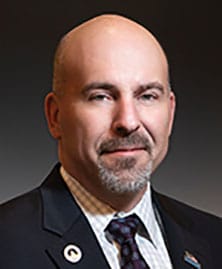CLEVELAND, Ohio (April 15) — The Federal Railroad Administration (FRA) on April 10 denied requests submitted by labor Organizations which, if approved, would have provided critical protections for railroad employees during the ongoing national COVID-19 (coronavirus) pandemic, according to the SMART Transportation Division (SMART-TD) and the Brotherhood of Locomotive Engineers and Trainmen (BLET).
“Although FRA believes that many safety precautions included in the Petitions could constitute best practices that should be applied in the railroad industry…” said FRA Administrator Ronald Batory in his response to the Organizations, “…FRA does not believe that an emergency order is justified.” Meanwhile, FRA is standing behind its decision to approve sweeping emergency relief requests submitted by rail carriers.
Previously, in an April 2 letter to SMART-TD President Jeremy Ferguson and BLET President Dennis Pierce, FRA Administrator Batory defended his agency’s approval of a wide-ranging 60-day waiver that suspends or delays scores of critical safety regulations. Yet, nowhere in his letter did Administrator Batory even acknowledge receipt of the unions’ separate requests for Emergency Orders for freight rail service and for passenger/commuter rail service — which were filed jointly by the two unions before the railroads filed their waiver petitions. A copy of his letter is available here (PDF).
In late March, the FRA granted a sweeping petition for a 60-day waiver of scores of critical safety regulations. On March 31, the unions called the waiver “alarming” and demanded clarification from the FRA.
“In their Emergency Relief requests, the carriers placed a strong emphasis on claims that manpower shortages either exist, or may exist, regardless of the fact that thousands of rail employees remain in furlough status,” SMART-TD President Ferguson said. “The FRA’s decision to issue waivers based on these bogus claims is disturbing, especially when the waivers apply to territorial qualifications, hours of service, and scope rules for certain crafts. It’s time to begin recalling furloughed employees and preparing for a worst-case scenario, rather than jeopardizing the safety of our crews, their households, and our communities.”
“It appears that the FRA has done nothing more than rubber-stamp a wish list from the rail carriers, absolving them from enforcing critical safety rules,” BLET President Pierce said. “Regardless of how Administrator Batory now describes FRA’s waiver, it has given a carte blanche invitation to the industry to ignore rules, and it will have a substantial chilling effect on safety if fully applied.”
The FRA has yet to mandate safety protocols to protect the health of railroad workers amid the national COVID-19 (coronavirus) outbreak. In letters dated March 6 and March 20, SMART-TD and the BLET urged the FRA to issue an Emergency Order implementing Centers for Disease Control and Prevention (CDC) guidelines to help mitigate the potential spread of the coronavirus among rail workers. In his April 10 response, FRA Administrator Batory acknowledges that his administration is authorized to issue Emergency Orders when an “unsafe condition or practice, or combination of unsafe conditions and practices, causes an emergency situation involving a hazard of death, personal injury, or significant harm to the environment.” Nonetheless, Batory goes on to advise “…[COVID-19] challenges are not unique to the railroad industry, and thus not the type of rail safety issue where FRA would typically exercise its emergency order authority….” Rather than grant the Organizations’ requests for an Emergency Order, FRA published a Safety Advisory recommending that the railroads develop and implement practices consistent with Federal recommendations and CDC and OSHA guidelines.
“Over the centuries, our nation’s railroads have proven to us time and time again that they are incapable of responsible self-regulation,” President Ferguson said. “The FRA’s Safety Advisory is merely a recommendation to the railroads to provide our members the safe and sanitary working environment that they and their families deserve. This does not inspire confidence that the railroads will actually comply with these guidelines as written, and it will apparently now be up to us as labor to hold them accountable to those standards.”
“This Administration’s refusal to regulate worker safety stands in stark contrast to its actions to appease the railroad industry,” President Pierce said. “On a daily basis, railroad crews are being subjected to conditions that violate the CDC’s best practices for social distancing, sanitation, and cleanliness, and they are not provided the necessary tools to keep themselves safe, such as sanitizers, disinfectants and personal protective equipment. Our members put their lives on the line every day when they go to work, and the FRA must do more to protect their lives and their livelihoods.”
###
The SMART Transportation Division is comprised of approximately 125,000 active and retired members of the former United Transportation Union, who work in a variety of crafts in the transportation industry.
The Brotherhood of Locomotive Engineers and Trainmen represents nearly 58,000 professional locomotive engineers and trainmen throughout the United States. The BLET is the founding member of the Rail Conference, International Brotherhood of Teamsters.

